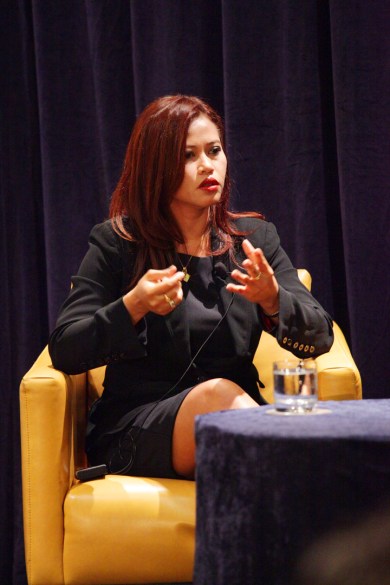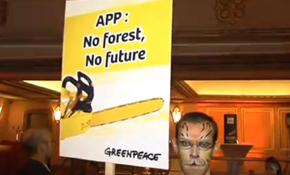
APP has been the target of a barrage of negative campaigns, she said, and claimed that the company had become a “whipping boy” for international NGOs.
In the hour-long webcast, Greenbury (pictured) fielded questions from ProPrint editor Steve Crowe and from webcast viewers across the globe on the sustainability of the Indonesian pulp and paper industry and APP’s activities.
Asked why APP’s relations with the FSC standards body had fractured, Greenbury said that its facilities did in fact pass the FSC’s requirements, but that new FSC principles were formed in 2007 that were applied to freeze APP out of the process.
She said that the company had endeavoured to find a working solution with the FSC, but was still awaiting a response, and that it had asked these principles be applied to all paper companies working to the standard.
Greenbury drew a line between the standards and companies of the Western hemisphere, and the unique needs and requirements, both environmental and social, of Indonesia.
She said that, although its competitors had converted their plantations many years ago, APP was a relative newcomer to the industry and the process of converting forestry – which was legally granted by the Indonesian government – to production plantations, is very different from simply maintaining existing plantations in a sustainable manner.
Greenbury added that, as a relative newcomer to the pulp market compared to major players in the western hemisphere, APP had been subjected to a lot of scrutiny — more so than its competitors — and that this “enabled us to learn from their mistakes”.
A video of the full webcast interview can be found here and a photo gallery is available here. A full wrap of the landmark interview will be featured in the December issue of ProPrint Magazine.
Comment below to have your say on this story.
If you have a news story or tip-off, get in touch at editorial@sprinter.com.au.
Sign up to the Sprinter newsletter



